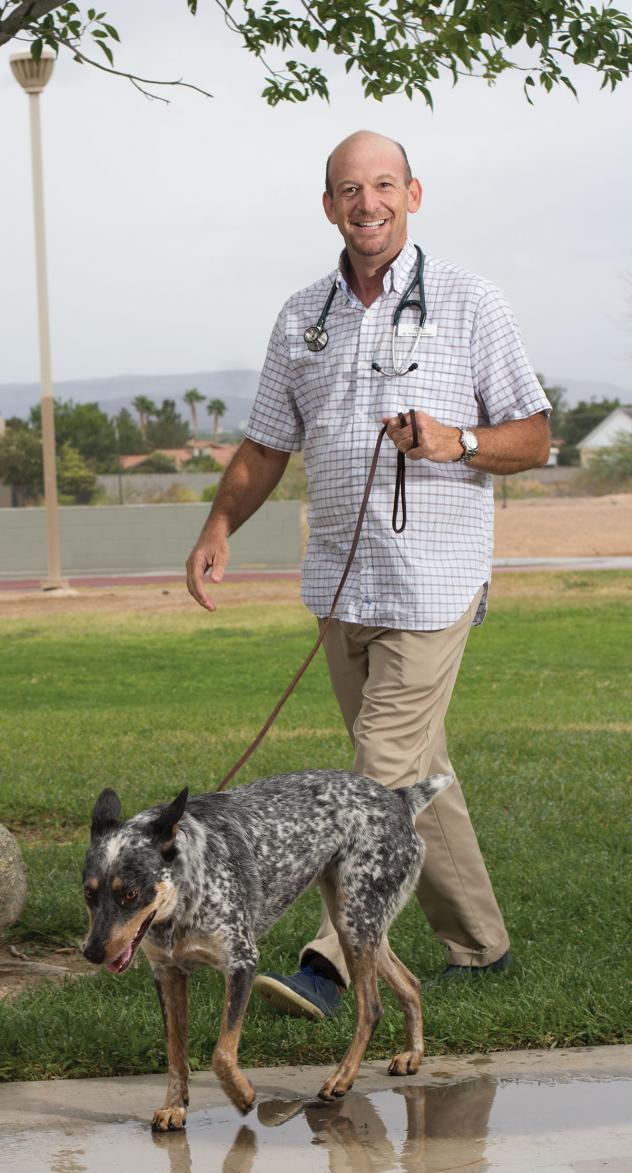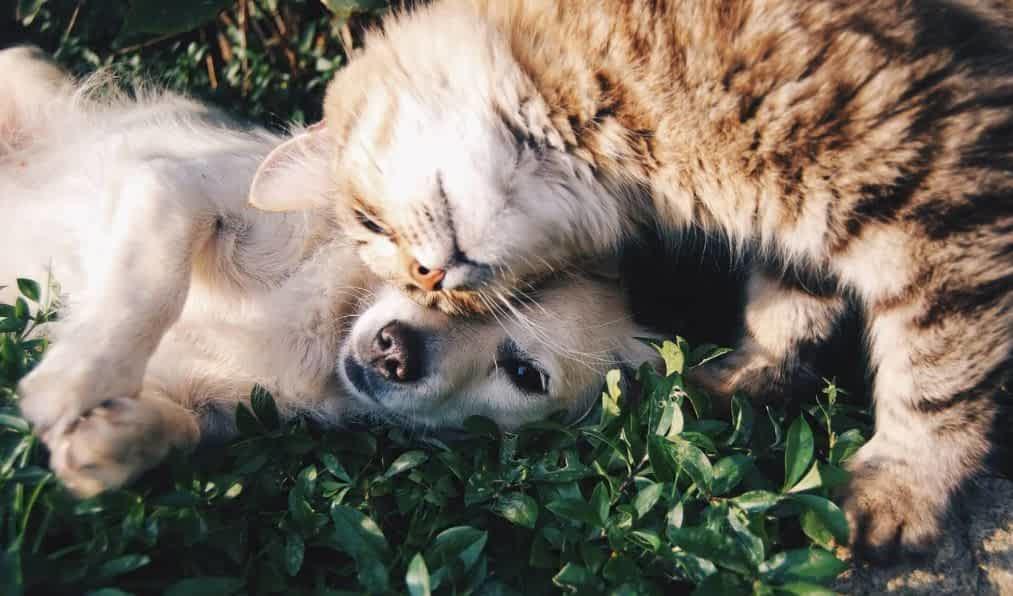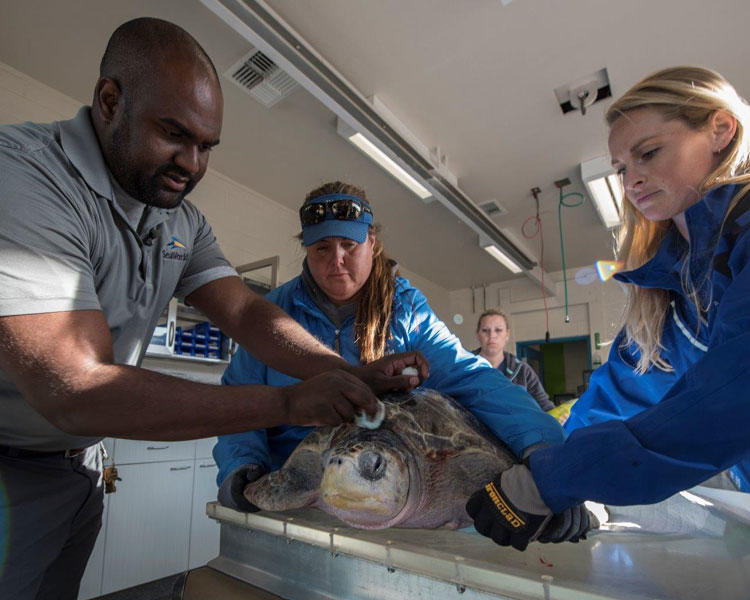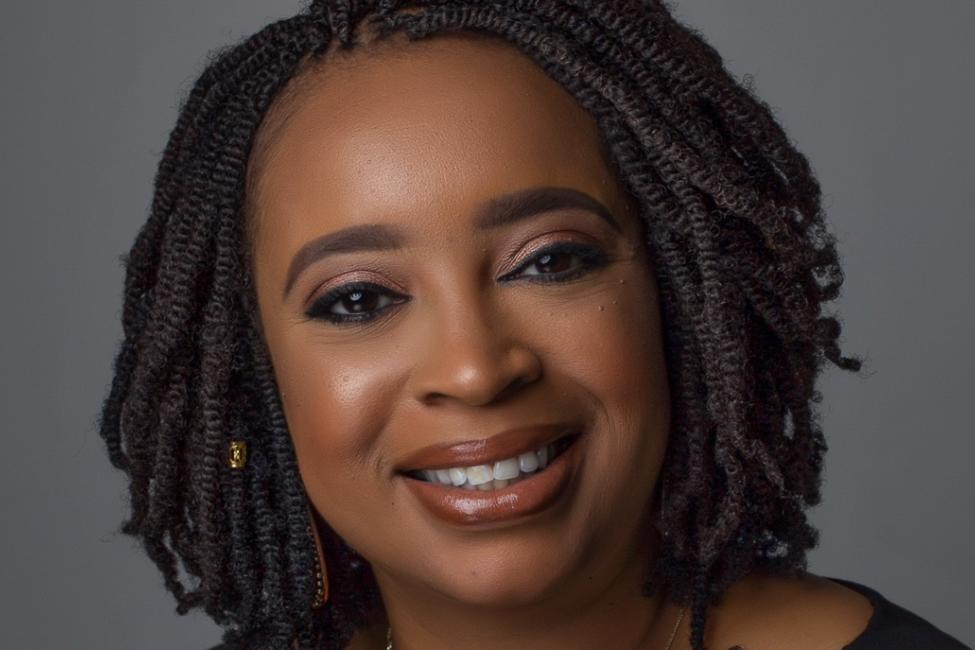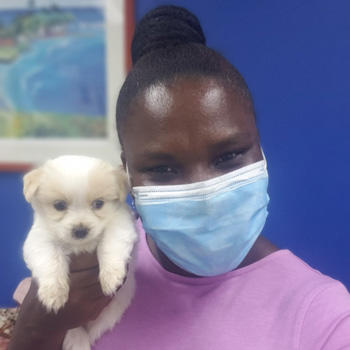Dr. Toby Goldman was the keynote speaker for Ross University School of Veterinary Medicine (RUSVM) White Coat Ceremony.
The RUSVM alumnus is Nevada’s only full-time hospice veterinarian and a member of the International Association of Hospice and Palliative Care. He also chairs the Mentoring and Wellness committees nationally for Lap of Love Veterinary Hospice. Before coming to RUSVM with a Bachelor of Science in Animal Science from California Polytechnic State University (Cal Poly) in San Luis Obispo, he completed his clinical year at Oklahoma State University. Since graduating, Las Vegas has been his home for 25 years where he’s built and managed several successful veterinary practices, and maintains a part-time exotic and zoo animal practice.
Before returning to the United States, Dr. Goldman reflected on his time on the island and shared real life advice to future veterinarians and researchers.
What was your experience like on the island?
“I traveled abroad a lot before coming to Vet school, and that helped me settle in quickly on the island. I loved the warmth and the smiles of everyone around me. I also did my juggling and comedy routine on Friday nights at The Jack Tar Resort and Casino for almost two years. While on island, I was in the water a lot, often snorkeling after class or on weekend mornings. I also performed for the Prime Minister and jokingly pretended to drop my juggling machetes, known as a 'cutlass', down on him as he sat in the front row. His wide-eyed face was captured on ZIZ TV, and although I was a bit fearful of what I'd done, the country appeared to all have a laugh. I have had amazing memories thinking back on my time here but my proudest moment was raising money for the local Special Olympics children to attend the games in Minnesota. I did shows to help raise enough money to send nine children, who had never been on a plane before, and their chaperones, to Minnesota. Everyone followed their journey and competition as they made St. Kitts proud.”
What is the greatest lesson that you learnt after graduating RUSVM?
“The opportunities were seemingly endless once I graduated. I felt confident as if I could go anywhere and do almost anything. My sense of accomplishment merged into working hard in hospitals and learning our craft. Not only new procedures and medications, but how to better communicate. When I hire veterinarians, I ask them to tell me a joke or an interesting story, or perhaps sing a tune. I could teach them the skills, but if they can't communicate and form relationships - the skills didn't matter.”
What inspired you to choose the path of being a hospice veterinarian?
“I sold Island Pet Hospital which I built and managed. During this time of transition I answered an advertisement from Lap of Love. I soon met the co-founder Dr. Mary Gardner, and she convinced me to try it. I started answering every phone call seven days a week and hustling to every appointment I made, while I worked part-time for some colleagues practices. The hospice work grew steadily and I became familiar to most hospitals around town. My referrals mostly shifted from web searches to the local veterinarians. I stopped working in the clinics and have not looked back.”
What is a typical day like for a hospice veterinarian?
“I do not have the all-day grind in the hospital anymore. I am available about 10-12 hours a day five days a week. I make my own schedule, and have another veterinarian to cover the rest. I get to stay home or drive out and about, responding to text messages and emails from my support staff.
I go to people’s homes mainly, and it's very relaxed. I am blessed now to travel with my doctor’s bag and stethoscope. I get to meet awesome pets and families, and it's among the few times that they need a veterinarian the most. No longer do I have big utility bills, staffing problems, and all the responsibilities I once had as a practice owner. It feels great to be of service to families during such a crucial and tough time, and in such a deep and rewarding way. I am continually called an angel and always get a hug, something I rarely got working all night in the emergency room.”
What’s one thing you’d like pet owners to know about end of life animal care?
“That there is such a thing as hospice for their pets. When their veterinarian says that there is not much more we can do, that's where I step in. Many veterinarians and clients have a tough time even talking about end of life care, and animal hospice is often misunderstood. The biggest question asked is "How do we know when it's time"? I help answer that while being a strong advocate for their pets' comfort.”
What are key signs pet owners should look for if they suspect that their pet is in pain and on the verge of death?
“We do not put our pets on the couch and ask about their childhood, we must look at what's happening now. It's all about their behavior, and what has changed. Just sleeping more and becoming less interactive is already cause for intervention. If your pet is limping or crying out it's already a severe condition. It always seems too early to say goodbye, until it's too late.”
What should students consider if they are interested in pursuing this path of being a hospice veterinarian?
“I would advise them to work for 3-5 years in a clinical setting to learn the more common diseases and what we do about them. They can still practice hospice care for their patients like pain control, and ask their clients what they would like the end of their pet’s life to look like. I’d encourage them to have the tough conversations and perform as many warranted euthanasias as they can to get better at it.”
How do you remain relevant in your field?
“Being relevant in our industry happens by being relevant to one person at a time, each day, day after day. Every day I think about how I can best show up in this world, and what is the best thing I can do for pets and their families. I enjoy speaking and writing and mentoring others about what I do. I also make sure to attend pertinent meetings and conventions to be with the top people in our field.”
Would you recommend RUSVM to peers and prospective students?
“Yes, of course! When I moved off the island to do my senior clinical training at Oklahoma State University, I felt just as well prepared, if not more, than my stateside counterparts. I went on to pass my National Board Exam and Clinical Competency test during my senior year.”
